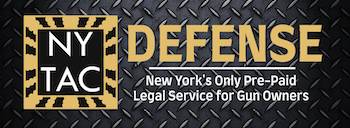Representation.
Larceny by Embezzlement
Embezzlement, or as it is known in New York, larceny by embezzlement, is codified at New York Penal Law 155.05(2)(a). Generally, one accused of larceny by embezzlement will be charged with grand larceny and the maximum penalty will be based upon the amount of money that the prosecutor accuses the defendant of stealing. New York Penal Law 155.30 et seq. At its lowest level, theft of $1,000.00 is a class E felony and the maximum penalty is 4 years. At its highest level, theft of a $1,000,000.00 or more the charge becomes a class B felony and the maximum penalty is 25 years in prison. Larceny by embezzlement is a specific type of theft that is distinguishable from common larceny by the fact that one who commits embezzlement must have had the right to possess another person’s or corporation’s property and then dispose of that property unlawfully. Corporate executives, controllers, CFOs, procurement officers, and asset managers stand at risk to have charges of larceny by embezzlement pressed against them by vindictive board members or blamed as fall persons or scapegoats for corporations or public agencies whose own failure to manage money in a responsible manner is causing those corporations or agencies problems.
If you have been accused of embezzlement call our New York Embezzlement Attorneys today for a free consultation.
Those charged with grand larceny, through larceny by embezzlement often have no prior criminal record, and in fact, have been pillars of their communities, philanthropists, and generous givers of charity. Factors such as these may help resolve a case of larceny by embezzlement in a more favorable manner.
Larceny by embezzlement is distinguishable from simply not repaying a debt. The highest court in New York State, the Court of Appeals explains that, there must be a distinction between the refusal or failure to pay a valid debt and the criminal act of larceny by embezzlement. The central theme of larceny by embezzlement is the conversion by the embezzler of money or property belonging to another which was entrusted to the embezzler to safeguard or hold for the owner. See, People v. Yannett. In order for the lay person to better understand this, conversion’s legal meaning must be explained. Conversion is a legal term that describes the taking of one’s property by a second person and converting that property to the second person’s purposes. What the Court of Appeals is explaining is that the most important factor in showing the difference between larceny by embezzlement, rather than mere non-payment of a debt, is trust.
Debts are generally money loaned on the condition it is re-payed usually with interest or up front costs. A loan is made through a contract. The terms of the contract bind the transaction. In larceny by embezzlement a person has the right to use or distribute a company’s money, but instead takes it for themselves. This example shows the distinction. A corporation may give a CFO the power to borrow and spend using the corporation’s line of credit for the benefit of the corporation. The CFO instead uses the corporation’s line of credit to borrow money for himself to spend on a new boat while altering documents to make it appear as though the money was borrowed and spent on office supplies or other operating expenses. This is larceny by embezzlement.
If you are someone you know has been accused of larceny by embezzlement please call our experienced New York Criminal Attorneys to review your case. We may be able to help reduce your charges or get you acquitted. Our New York Criminal Attorneys are prepared to take your case all the way to trial and our team has a strong track record of victories in front of juries. Call our office for a free consultation.

















